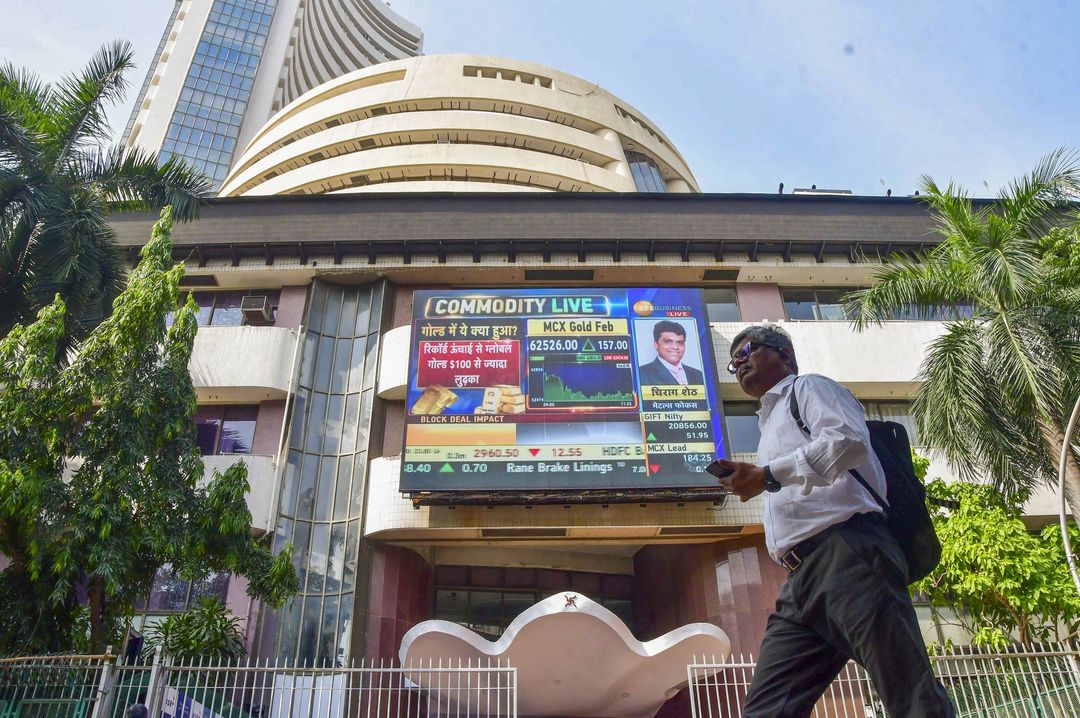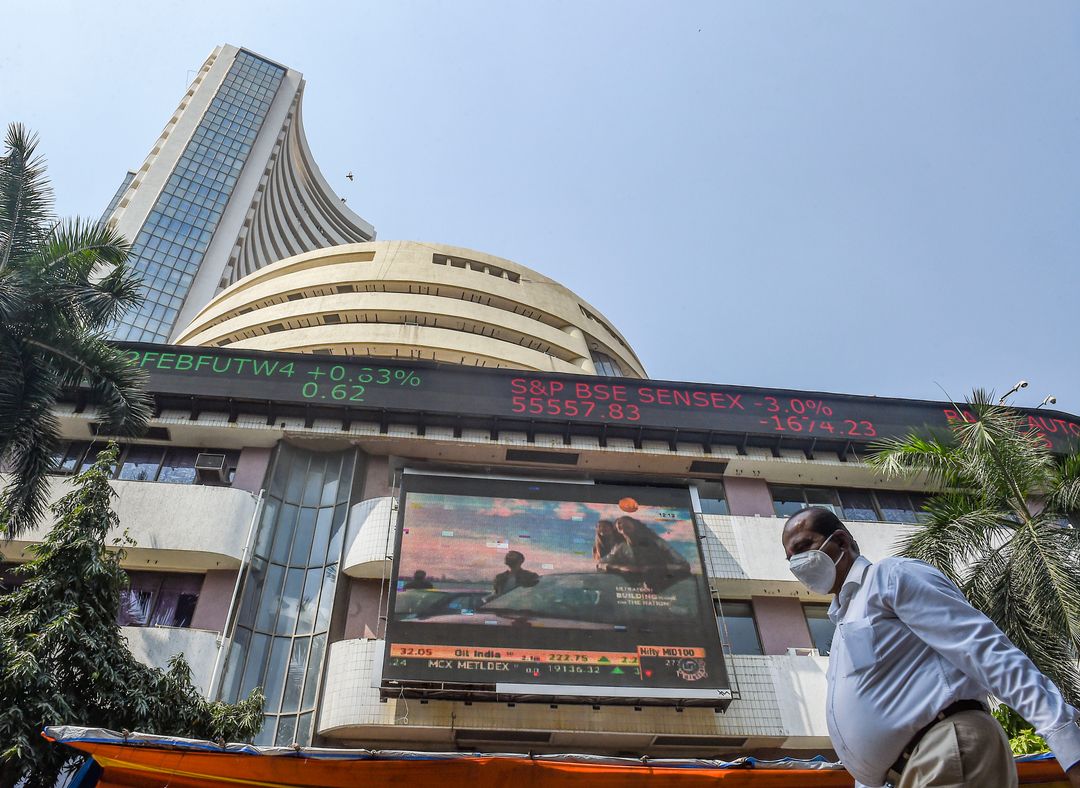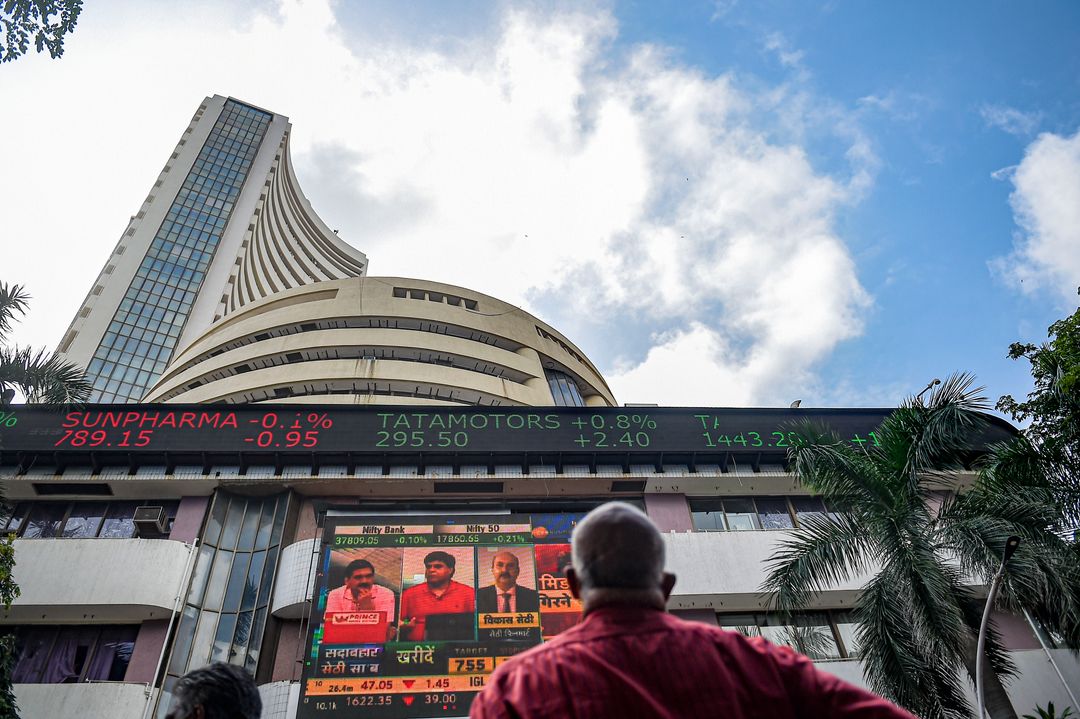
Benchmark indices Sensex and Nifty witnessed a volatile start on Friday, weighed down by persistent foreign investor selling and global uncertainty stemming from trade war tensions involving the United States.
Early Trading Session
After two consecutive days of gains, the 30-share BSE Sensex declined by 243.51 points or 0.33% to settle at 74,096.58 during morning trading. Similarly, the NSE Nifty dropped 53.35 points or 0.24%, trading at 22,491.35.
Stocks Under Pressure
Key stocks dragging down the indices included IndusInd Bank, NTPC, HCL Technologies, Tech Mahindra, Zomato, Power Grid, ICICI Bank, Infosys, ITC, Hindustan Unilever, and Bharti Airtel.
Conversely, shares of Tata Motors, Reliance Industries, Tata Steel, Adani Ports, Larsen & Toubro, and Axis Bank recorded gains, cushioning the market decline to some extent.
Trade War Concerns and Global Market Impact
The volatility in Indian markets is closely linked to global investor sentiment following US President Donald Trump's decision to postpone tariff impositions on Canada and Mexico until April 2nd. According to V K Vijayakumar, Chief Investment Strategist at Geojit Financial Services, markets perceive Trump's shifting stance on tariffs as a sign that he prefers negotiating trade agreements rather than sustaining long-term high tariffs.
"Markets are taking Trump's tariff delays seriously, interpreting them as an acknowledgement that sustained high tariffs would ultimately hurt the US economy," Vijayakumar explained. He added, "The sell-off witnessed in US markets overnight highlights investor concerns about the potential impact of Trump's trade policies on growth and corporate earnings."
Asian Markets Mixed
Asian markets displayed a mixed sentiment, with Tokyo and Seoul trading lower and Shanghai remaining flat. Hong Kong managed to stay in positive territory. Meanwhile, US stock markets closed lower overnight, reflecting increased caution among investors.
Impact on India and Currency Outlook
Despite global volatility, Vijayakumar suggested that the weakening of the dollar index is a positive signal for India, complementing the nation's economic recovery and fair market valuations.
"Although Foreign Institutional Investors (FIIs) have continued selling, exceeding Domestic Institutional Investor (DII) buying, the Indian stock market remains resilient, driven by increased buying from retail investors, High Net-worth Individuals (HNIs), and Ultra High Net-worth Individuals (UHNIs)," he noted.
Institutional Trading Activity
On Thursday, FIIs sold equities worth ₹2,377.32 crore on a net basis, whereas DIIs purchased equities amounting to ₹1,617.80 crore, as per data from stock exchanges.
Crude Oil Prices and Federal Reserve Outlook
In commodities, Brent crude oil prices marginally rose by 0.07% to USD 69.51 per barrel. Additionally, market participants eagerly await remarks from US Federal Reserve Chair Jerome Powell, along with details regarding the central bank’s balance sheet, set to be disclosed later on Friday.
Tariff Delay by the US
US President Donald Trump recently postponed the proposed 25% tariffs on Mexican goods by one month following discussions with Mexico's president. The move followed statements from Commerce Secretary Howard Lutnick, indicating a likely delay of tariffs on Canadian and Mexican imports.
On the previous trading day, the Sensex had risen significantly, climbing 609.86 points to close at 74,340.09, while the Nifty gained 207.40 points, finishing at 22,544.70.

